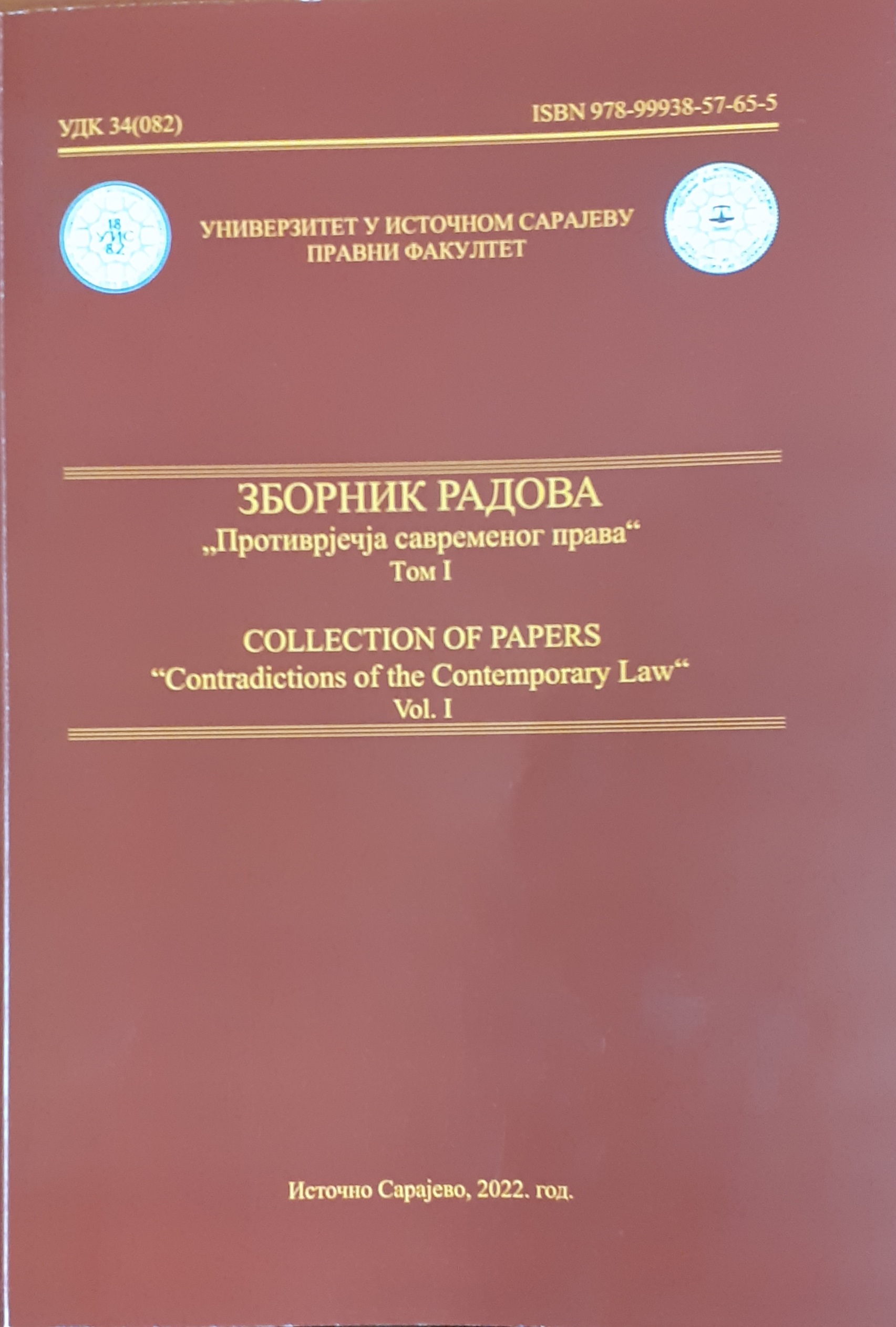Противречности "Инцковог закона" - забрана негације или негација слободе
Contradictions of "Inzko's Law"- Prohibition of Negation or Negation of Freedom
Author(s): Mihajlo A. Vučić
Subject(s): Law, Constitution, Jurisprudence, Nationalism Studies
Published by: Правни факултет Универзитета у Источном Сарајеву
Keywords: Genocide; Denialism; Negationism; Bosnia and Herzegovina; Srebrenica; Freedom of expression;
Summary/Abstract: The prohibition of negationism has become ever more present in contemporary legal systems, especially European ones. Bosnia and Herzegovina has recently followed suit with the adoption of the Criminal code amendment that prohibits negation of judicially established crimes that occurred during the civil war in this country, if the negations act is capable of inciting towards hatred or violence. In this article, the author presents a two-pronged critique of this legislative solution. The first one is based on the obligations of BiH towards Council of Europe's Convention on Human Rights and Fundamental Freedoms, which guarantees the freedom of expression for BiH citizens. The jurisprudence of the European Court of Human Rights restrictively interprets the exceptions to this guaranteed freedom. In the case of denial of historical crimes in other societies whose states are parties to the Convention, the Court was unwilling to side with the state in its wish to criminally punish the denial of these crimes. The Perinçek case is especially important for BiH situation, since it dealt with the genocide denialism by a historian and journalist who tried to prove the qualification of atrocities against Americans is untenable under international law and circumstances of the case. It would be interesting to see how the Court would react to a future case where the applicant would claim the breach of his freedom of expression due to criminal prosecution for denial of Srebrenica genocide. The second one is based on the author's previous research which shows that so-called memory laws, i.e. legal acts that tempt to exclusively interpret historical events, lead to further social instability in vulnerable societies - societies which have experienced civil wars in their past and have still not reached a common interpretation of these events that would be acceptable by all major social groups. Through the criminalization of denial of certain events from the traumatic and still unsettled history of BiH, the legislator has excluded a large portion of its society from the official debate over its common history and identity. Thus the law changes into an instrument of social control and pressures individuals to refrain from alternative interpretations of history, whatever their intentions may be.
Book: Зборник радова "Противрјечја савременог права" Том I
- Page Range: 149-164
- Page Count: 16
- Publication Year: 2022
- Language: Serbian
- Content File-PDF

